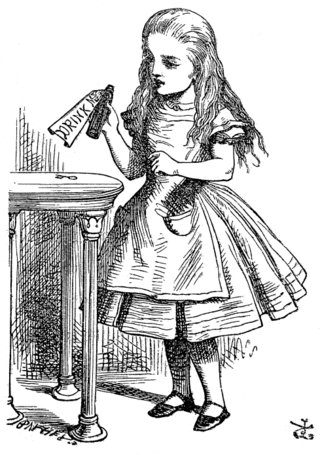
Chloe, also spelled Chloë, Chlöe, or Chloé, is a feminine name meaning "blooming" or "fertility" in Greek. The name ultimately derives, through Greek, from the Proto-Indo-European root *ǵʰelh₃-, which relates to the colors yellow and green. The common scientific prefix chloro- derives from the same Greek root. In Greek the word refers to the young, green foliage or shoots of plants in spring.

Maeve, Maev or Maiv is a female given name of Irish origin. It comes from the Irish name Méabh, which was spelt Meadhbh in Early Modern Irish, Meḋḃ or Meaḋḃ in Middle Irish, and Medb in Old Irish. It may derive from a word meaning "she who intoxicates", "mead-woman", or alternatively "she who rules". Medb is a queen in Irish mythology who is thought to have originally been a sovereignty goddess.

Bonnie is a Scottish given name and is sometimes used as a descriptive reference, as in the Scottish folk song, My Bonnie Lies over the Ocean. It comes from the Scots language word "bonnie", or the French bonne (good). That is in turn derived from the Latin word "bonus" (good). The name can also be used as a pet form of Bonita.
Kaylee is a given name, most often for females. The name is a modern English combination of the name elements Kay and Lee. It might have been popularized in the United Kingdom by the song Kayleigh by progressive rock band Marillion, which was a hit in 1985.

Michaela is a female given name. It is a female form of the Hebrew name Michael (מִיכָאֵל), which means "Who is like God".

Holly is an English-language surname and given name.
Ashley is a given name which was originally an Old English surname. It is derived from the Old English (Anglo-Saxon) words æsċ (ash) and lēah and translates to "Dweller near the ash tree meadow".

Florence is usually a feminine given name. It is derived from the French version of (Saint) Florentia, a Roman martyr under Diocletian. The Latin florens, florentius means "blossoming", verb floreo, meaning "I blossom / I flower / I flourish". Florence was in the past also used as a translation of the Latin version Florentius, and may be used in this context as a masculine given name.

Alice is a feminine first name with roots in the French and German languages.

Dorothy is a feminine given name. It is the English vernacular form of the Greek Δωροθέα (Dōrothéa) meaning "God's Gift", from δῶρον (dōron), "gift" + θεός (theós), "god". It has been in use since the 1400s. Although much less common, there are also male equivalents in English such as Dory, from the Greek masculine Δωρόθεος (Dōrótheos). Dorofei is a rarely used Russian male version of the name. The given names Theodore and Theodora are derived from the same two Greek root words as Dorothy, albeit reversed in order.

Destiny is a primarily feminine given name meaning "destiny", "fate", which is ultimately derived from the Late Latin word destinata. Commonly used spelling variants include Destinee, Destiney, and Destinie.

Poppy is a feminine given name derived from the name of the flower poppy, itself derived from the Old English popæg and referring to various species of Papaver. The name has been among the one hundred most popular names for girls in England and Wales since 1996 and among the top twenty-five names for girls since 2009. It has also recently risen in popularity in other countries in the English-speaking world, including Australia, Canada, New Zealand, and the United States. The popularity of the name coincides with increased use for girls of other flower names and names inspired by the natural world. Increased awareness of the name has also been attributed to the naming of the children of some celebrities.

Jade is a given name derived from the ornamental stone jade, which is used in artwork and in jewellery-making. The name is derived from the Spanish piedra de la ijada, which means "stone of the bowels". There was a belief that when jade was placed on the stomach, it could cure colic in babies. The stone is greatly valued in Asian countries. Confucius believed it had properties encouraging purity, bravery, and honesty. Chinese emperors were buried in suits made of the stone because they believed it would make them live on forever.

Shirley is a given name and a surname originating from the English place-name Shirley, which is derived from the Old English elements scire ("shire") or scīr and lēah. The name makes reference to the open space where the moot was held. The surname Shirley became established as a female given name in 1849 due to its use in Charlotte Brontë's novel Shirley, in which the character explains that her parents had intended the family surname for a son. It was further popularized in 1851–52 by its pseudonymous use by California Gold Rush writer Louise Amelia Knapp Smith Clappe. It was eventually brought to its highest popularity, in the 1930s, by the fame of child star Shirley Temple.
Alison is a unisex given name, primarily a feminine name in English-speaking countries. It was originally a medieval French nickname for Alis, an old form of Alice derived with the suffix -on or -son sometimes used in the former French nicknames. The Middle English form was Alisoun.

Ivy is a given name or surname taken from the name of the plant. It became popular as a given name in the late 1800s along with other plant and flower names for girls. As a given name for girls, Ivy first entered the Top 200 in England and Wales in 1880, when it ranked #180, and reached the height of popularity when it was the 16th most popular name in England and Wales in 1904. It has again risen in popularity and, as of 2020, Ivy was the sixth most popular girls' name in England and Wales. It has also risen in popularity in other English speaking countries. It has ranked among the top 50 names for newborn American girls since 2021 and was the 42nd most used name for girls there in 2022. In 2022, it was the 33rd most popular name given to girls in Canada. Other botanical names are also currently fashionable, as are other names that contain the letter v.
Luna is a feminine given name of Latin origin, meaning moon. In Roman mythology, Luna was the divine personification of the Moon.
Brenda is a feminine given name in the English language.
Stella is a female given name. It is derived from the Latin word for star. It has been in use in English-speaking countries since it was first used by Philip Sidney in Astrophel and Stella, his 1580s sonnet sequence. Use might also have increased due to Stella Maris as a title for the Virgin Mary by Catholics. Alternately, it is a feminine version of the Greek name Stylianos, meaning pillar.

Reina, which is also spelled Raina, Rayna, or Reyna in English, is a feminine given name with multiple, unrelated origins from a number of different languages and cultures. All of these unrelated names are pronounced and written similarly in English.














